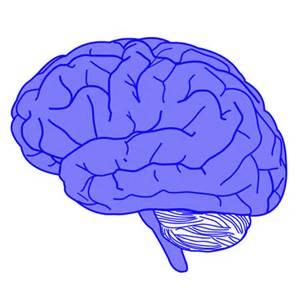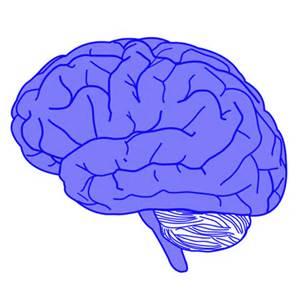
INDIANAPOLIS — Brain health is critical to successful aging. A new four-year $4 million grant from the Agency for Healthcare Research and Quality to the Indiana University Center for Aging Research funds the establishment of the Brain Health Patient Safety Learning Laboratory, at Eskenazi Health. The project is a collaboration with the IU schools of Medicine, Informatics and Computing, and Nursing; the Purdue University schools of Biomedical and Industrial Engineering; Purdue College of Pharmacy and the Regenstrief Institute, Inc.
With the multidisciplinary expertise of more than a dozen faculty members and other key personnel, the new Brain Safety Lab will develop potential brain safety solutions, test prototypes and deploy them in the real-world clinical setting of the Sandra Eskenazi Center for Brain Care Innovation.
Drawing upon knowledge from fields as diverse as aviation safety, industrial engineering and implementation science, as well as various health specialties, the Brain Safety Lab seeks to redesign the complex systems involved in providing health care to amplify attention to the well-being of the human brain.
"We need to and can do more to ensure brain health, actively focusing on the behaviors and needs of both patients and providers," said Christopher Callahan, M.D., founding director of the IU Center for Aging Research, a Regenstrief Institute investigator and Cornelius and Yvonne Pettinga Professor in Aging Research at the IU School of Medicine. "As we have with the heart and other organs — we, both clinicians and patients — can do a better job of preventing harm and maintaining the brain as it ages." Dr. Callahan, a geriatrician, is the principal investigator on the AHRQ grant and directs the Brain Safety Lab.
The Brain Safety Lab incorporates project, engineering and administrative cores. The project core includes expertise in clinical medicine, clinical pharmacology, behavioral economics and implementation science. The engineering core includes expertise in biostatistics and bioinformatics, biomedical engineering, human factors, safety engineering and management, and systems engineering analysis. The administrative core supports both.
"As we merge safety and health care, we will be changing cultures inside and outside the healthcare system," said Dr. Callahan. The Brain Safety Lab will be part of a learning network that will help clinicians treat the right patient at the right time with the right intervention and monitor that treatment."
"The new Sandra Eskenazi Center for Brain Care Innovation combines both research and patient care in one center," said Chris Weaver, M.D., MBA, chief medical officer of Eskenazi Health and associate professor of emergency medicine at the IU School of Medicine. "The Brain Safety Lab will allow physicians to collaborate on solutions to brain safety and provide a mechanism for these solutions to be tested in a real-world clinical setting."
Initially the Brain Safety Lab will focus on two areas from which lessons learned will then be applied beyond the initially targeted brain safety issues, beyond the targeted vulnerable older adults, and beyond the targeted health care system with the goal of disseminating best practices nationally and internationally.
The first project, led by Regenstrief Institute and IU Center for Aging Research investigator and Sandra Eskenazi Center founding director Malaz Boustani, M.D., MPH, will focus on patient safety harms from medications with anticholinergic effects, an area in which the IU Center for Aging Research has done significant work over the past decade. Drugs with anticholinergic effects include important medical therapies available by prescription and also drugs sold over the counter as sleep aids and as treatments for allergies or incontinence. This drug class has been implicated in cognitive impairment in older adults in studies from the IU Center for Aging Research and others.
The second project, led by Regenstrief Institute investigator Michael Weiner, M.D., MPH, will explore preventing repeated episodes of hypoglycemia (abnormally low blood sugar) in older adults with diabetes. Downward fluctuations in blood sugar levels have been associated with increased likelihood of dementia. Dr. Weiner is director of the institute's Health Services Research Program and of the IU Center for Health Services and Outcomes Research.
"Dementia is not a normal part of aging, we need to find effective ways to ensure that the brain — that most complex of organs — remains healthy as we grow older," said IU Center for Aging Research and Regenstrief Institute investigator Daniel O. Clark, Ph.D., a behavioral scientist and medical sociologist who is a co-principal investigator of the new grant and leader of the Brain Safety Lab's project core. "If we can help physicians and patients understand the multiple threats to brain health — for example, detailing when a person with diabetes is consuming foods in relation to their medication dose or the unintended insults to the brain from frequently prescribed drugs — we can come up with proposed solutions, imbedding safety features into the healthcare system. Ultimately we want to make it easier for providers, patients and caregivers to do the right thing."
Nearly 45 million persons age 65 and older lived in the United States in 2013, representing 14 percent of the population. It is estimated by the Administration on Aging that by 2060 there will be 98 million older adults in the U.S.
"Simply put, maintaining brain health is about preventing brain harm, a population management challenge that we must meet as our aging population grows. The Brain Safety Lab will help us accomplish this goal," said Dr. Clark.
###





